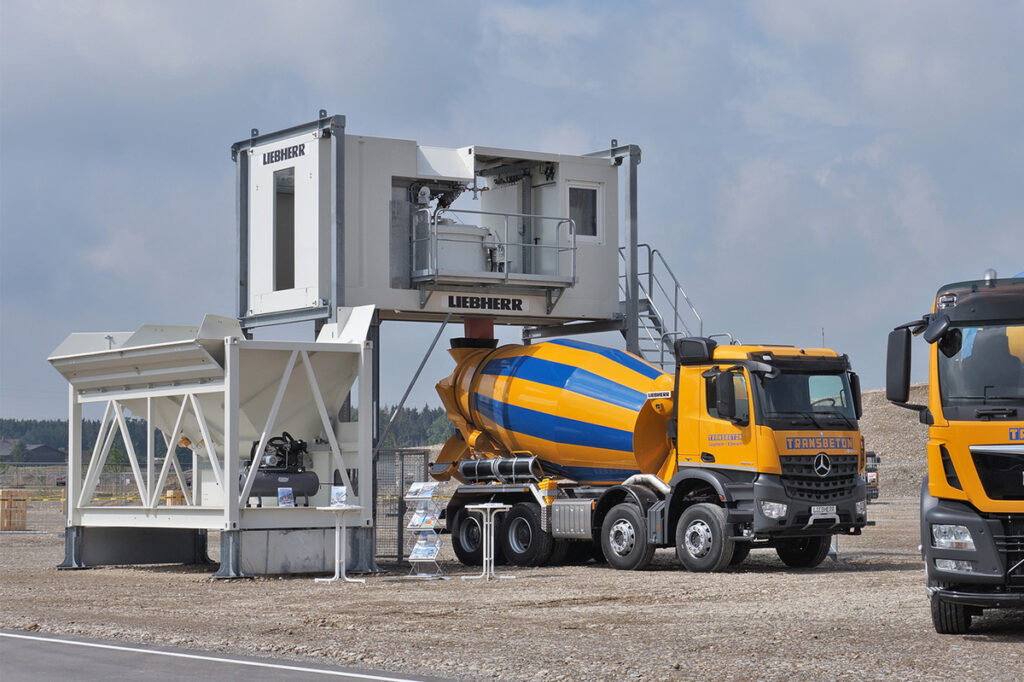Liebherr introduces its new generation of batching plants, also available as a mobile version known as Mobilmix. As a double plant, it can supply very large volumes of concrete and yet is extremely mobile and can be set up or moved in no time at all. This plant can be relied on to supply concrete to vast construction sites: with their 3 m³ twin-shaft mixers, the two batching plants can deliver up to 250 m³ of concrete per hour. Up to 280 m³ of aggregates can be stored in the eight chambers of the series silos.
The first concrete batching plants of the new Liebherr generation are already up and running. One such plant was recently delivered to Mobil Baustoffe as a double plant. The decisive factors in the decision to opt for this Liebherr plant were the high product quality, the space-saving design and the short delivery time.
High versatility with output capacity
Strabag will not accept any compromises when it comes to supplying concrete to construction sites in the future. Mobil Baustoffe, a subsidiary of Strabag, has acquired two high-performance concrete batching plants of the new generation from Liebherr for this purpose. With their 3 m³ twin-shaft mixers, the two batching plants can deliver up to 250 m³ of concrete per hour. Up to 280 m³ of aggregates can be stored in the eight chambers of the series silos. The four separate chambers can be filled from one side by means of swiveling partitions. This means that the double batching plant can be fed efficiently and quickly due to the centralized access to both series silos. Up to six types of binding agents with a total capacity of 600 tonnes can be stored in the cement section.
Efficiency and availability
Thanks to its robust design, the Liebherr batching plant is low-wear and easy to maintain. In addition, the product quality and galvanized design ensure high availability and a long service life. At Mobil Baustoffe, the plant was fully installed within two weeks thanks to easy-to-assemble components and was ready for concrete production a week later. Benefits that are essential for an economical and efficient construction site.

A mixing plant that reduces CO2 emissions
Frequency converters control the drives on the weighing belt, charger skip, cement section and mixer. This can result in energy savings of up to 30 percent and all processes can be optimized across the board. Hybrid mixing processes and shorter mixing times are easy to achieve and power peaks are reduced. There is also a considerable reduction in wear thanks to the smooth starting and stopping of the drives. It is the frequency converters however that offer the greatest and most important potential in the dosing of cement with an accuracy of +/- 0.5 %. With a typical recipe with 300 kg of cement per cubic meter of concrete, up to 7.5 kg of cement can be saved − which is an important argument for the new batching plant generation from an ecological and financial point of view. An excellent example of the innovation of this plant is the two twin-shaft mixers, which can adjust the speed during the mixing process to enable even more precise recipes.
Read the full article here